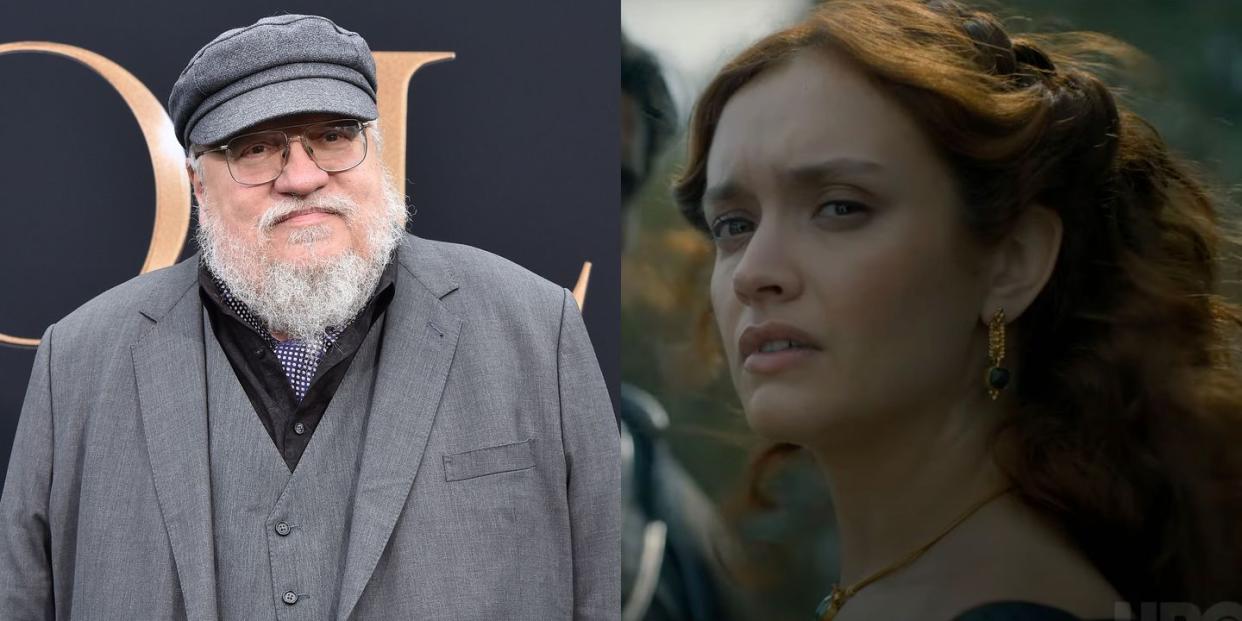George R. R. Martin Doesn’t Think the ‘Game of Thrones’ World Is Any More Misogynistic Than Real Life

- Oops!Something went wrong.Please try again later.
- Oops!Something went wrong.Please try again later.
- Oops!Something went wrong.Please try again later.
In less than a month, HBO is taking fans back to Westeros for the first of its super-hyped Game of Thrones companion series, House of the Dragon. The prequel show is set 200 years before the events of GoT, back when the Targaryen family ran the land—and fought a civil war (known as the Dance of Dragons) over exactly which member of the fam deserved to rule.
Over the weekend, members of the cast and creative team behind House of the Dragon hit San Diego Comic-Con for a Q&A to hype the already highly anticipated series. The panel included series cocreator Ryan Condal; actors Matt Smith, Olivia Cooke, Emma D’Arcy, Paddy Considine, Steve Toussaint, Eve Best, Fabien Frankel, Milly Alcock, and Emily Carey; and, of course, author George R. R. Martin, who created this whole phenom to begin with.
After a screening of the House of the Dragon trailer, the group fielded questions about everything from the series’ 17 (!!!) unique dragons to the new battle for the Iron Throne and why so few women have ruled Westeros. According to Martin, the answer is equal parts simple and sad: Westeros’s misogyny is a direct mirror of the misogyny of the real world.
“My books are fantasies, obviously, but I do follow history a lot,” he said (per People). “I get inspiration from history and then I take elements from history and turn them up to an 11, obligatory Spinal Tap reference, or to 111.”
Martin went on to explain the exact periods of real-world history he took inspiration from when plotting out both Game of Thrones and House of the Dragon:
“Game of Thrones, as many people observed, was based loosely on the Wars of the Roses. This show was based on an earlier period in history called the Anarchy, when Henry I, then the King of England, when his only legitimate son drowned while trying to cross the English Channel, he was left with only one legitimate heir, his daughter Matilda,” he explained. “He named her his heir, made all the lords of the kingdom swear their fealty to her, and then some years later he died and most of the lords in the kingdom forgot about that. Here comes her cousin Stephen, who crosses the channel, steals the treasury, and gets himself crowned king and you entered a period called the Anarchy where Matilda, or Maude as she was known, and cousin Stephen fought for two decades. It was horrible and bloody. That was the inspiration there. I don’t think Westeros is particularly more anti-woman or more misogynistic than real life and what we call history.”
Oof. Guess we’ll have to find out how the women of House of the Dragon fare against all the historically inspired sexism when the show premieres August 21 on HBO.
You Might Also Like

